
Billed as flagship programme under VS2025, it gathers 30,000 people and 100 food entrepreneurs over the course of 4 days
by AUFA MARDHIAH
THE Selangor Mega Food Fest 2025 may have drawn crowds for its grilled satay, smoky “sambal” and viral eats — but beyond the festivities at Dataran Kemerdekaan Shah Alam, Selangor, from May 1 to 4, the event symbolised something deeper: A state’s strateg y to heal its communities through food, culture and collective participation.
Billed as one of the flagship programmes under Visit Selangor Year 2025 (VS2025), the festival gathered more than 30,000 people and over 100 food entrepreneurs over the course of four days.
From traditional Selangor dishes like “ayam masak sumur” to digital-era vendors under Platform Selangor (PLATS), the event showcased a blend of heritage and modern hustle.
Beyond a culinary showcase, it represented a carefully designed ecosystem of empowerment — from micro-entrepreneurs rebuilding after Covid-19 to students gaining real-world exposure, all under one open sky.
Tourism Selangor Event and Focus Tourism Department manager Mohamad Faroul Mustaffa Ngadamin said after the pandemic, many entrepreneurs had great products but no way to revive their physical businesses.
“This festival gives them that bridge to the community again,” he said.
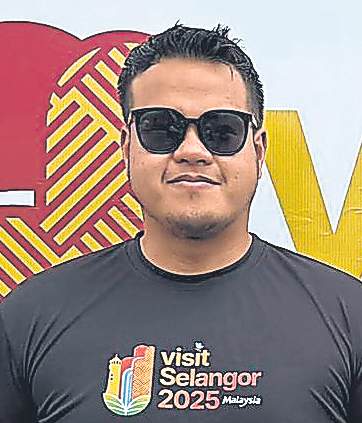
This festival gives entrepreneurs that bridge to the community again, says Mohamad Faroul Mustaffa
Community Festival by Design
Unlike most commercial food events, the Selangor Mega Food Fest was structured as a living, breathing representation of daily Malaysian life. Food zones were arranged around mealtime traditions: Breakfast favourites, hearty lunches, festival snacks and community dishes.
Cultural identity was also made central, with meals like “nasi ambeng” and “sambal taun” prepared by local cooks whose recipes were passed down through generations.
The event included the Padang Lapar concept, a public picnic space where visitors brought their own mats and chairs, and shared meals in the open with family and strangers alike.
Nearby, activities included cooking demos, concerts, inflatable play zones and even hot air balloon rides — making the venue a hybrid of food market, carnival and cultural exhibition.
“You don’t just come here to eat — you reconnect. You bring your family, your memories, your stories. That’s the spirit we wanted to revive,” Mohamad Faroul Mustaffa said.
Across its four-day run, Selangor Mega Food Fest 2025 featured a packed itinerary designed to engage every segment of society.
The programme began each morning at 10am until 11pm, blending fitness, music, spiritual reflection, cooking showcases and family-friendly activities across multiple zones and stage segments.
Day one opened with the International Women’s Day Run 2025, flagged off by Selangor Mentri Besar Datuk Seri Amirudin Shari and drawing 1,500 runners across 5km and 10km routes.
The same evening, Amirudin and Selangor State Executive Councillor Datuk Ng Suee Lim officiated the opening ceremony at Dataran Kemerdekaan.
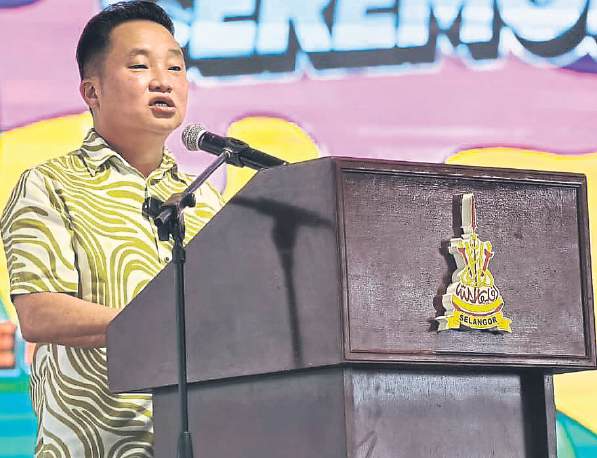
This festival proves that food is not merely for consumption, but a way to experience our local communities’ identity and way of life. — Datuk Ng Suee Lim
Later that night, crowds gathered for Sembang Malam Jumaat, a unique blend of light “tazkirah” and humour featuring preacher Ustaz Syamsul Debat and comedian Atu Zero.
It was followed by a “qasidah” and “nasyid” performance, bridging spiritual content with public accessibility.
Throughout the day, live performances kept energy levels high. A mix of professional and community groups — including buskers, traditional performers and youth bands — shared the stage with headline acts such as Ruffedge, XPDC, Aizat Amdan, Sofarz and Raihan.
One night was dedicated to Malam Semangat Rock Nusantara, another to Love Music Fest, while Malam Citrawarna showcased cultural dances and heritage music curated by Perbadanan Adat Melayu dan Warisan Negeri Selangor (Padat).
On-ground activities included cooking demonstrations by chefs from Double-Tree by Hilton i-City and social media personality Auntie Ja, as well as influencer meet-and-greets with figures like Aqil Zulkiflee and Vicha Barbie. A special Men vs Burgers eating challenge added a viral, competitive edge to the culinary theme.
Meanwhile, Management and Science University’s (MSU) heritage-themed treasure hunt called Ecospect Heritage Fest ran concurrently with booths and checkpoint games spread across the venue, while fitness sessions such as Pound Fitness and community activities attracted families during the day.
Flea market vendors, food stalls and hot air balloon rides helped create a festival-like atmosphere accessible to all ages.
The event closed each day with “Maghrib” and “Isyak” prayer breaks, reflecting the festival’s sensitivity to cultural rhythm and local values.
By the final night, the food fest had not only fed its visitors but reminded them that tourism, when people-centric, can truly nourish communities.
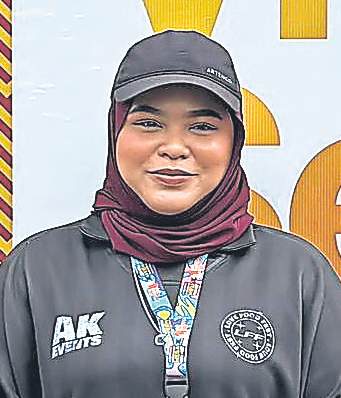
According to Siti Nursyahila, everything at the festival is designed to help rakyat recover economically
AK Events Brings Rakyat to the Centre
A key force behind the festival’s execution was AK Events, the organiser of Le Food Fest. Exceeding its logistics role, it embedded the entire programme with a philosophy of community-first, profit-last.
Project manager Siti Nursyahila Mohd Fazmy stressed that the festival was not a profit-driven event, but a platform for the people.
“Everything — from vendor selection to concerts to community booths — is designed to help the rakyat recover economically. Vendors do not just earn; they gain visibility and validation,” she said.
AK Events handpicked more than 100 food vendors from across Selangor, many of them participating under PLATS Selangor — a curated night market collective initiated by the state.
Districts such as Sabak Bernam, Klang and Petaling Jaya were all represented, ensuring that economic benefits reached across geography, not just centralised in Shah Alam.
Siti Nursyahila noted that PLATS Selangor traders typically operate in limited settings like night markets, but through this platform, they are able to participate in a formal state-level festival with infrastructure, branding and crowds.
The team also introduced attractions rarely seen at food festivals, such as the Mega SupaDupa — a massive 15m inflatable playground — and tethered hot air balloon rides, which gave families more reasons to stay longer. “We wanted this to be memorable. Not just about food, but an outing you would talk about for weeks,” she said.
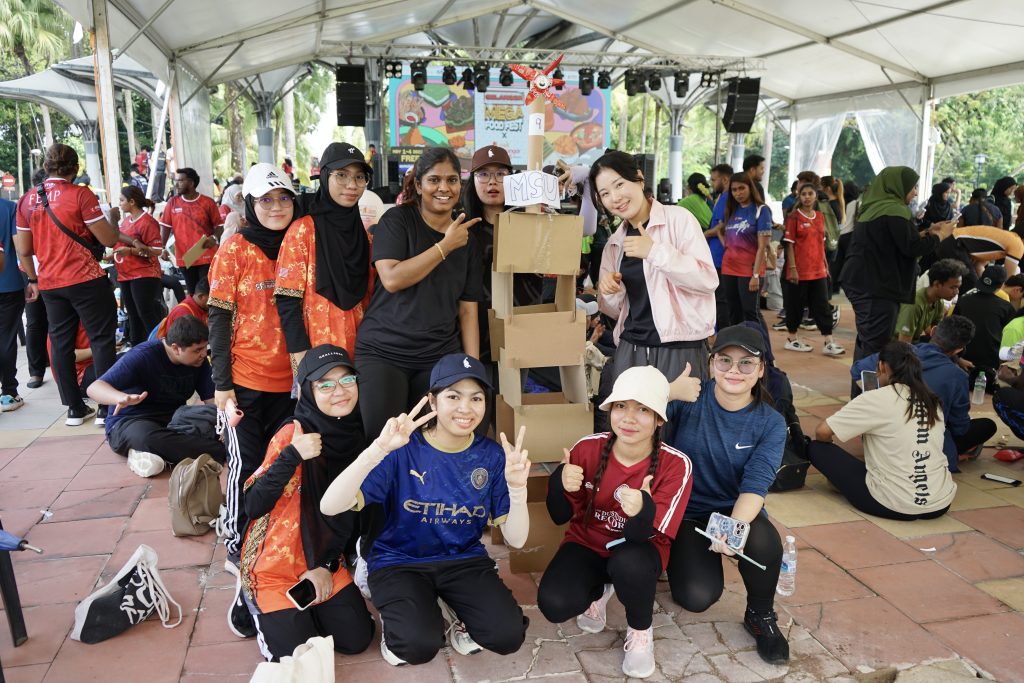
MSU’s heritage-themed treasure hunt, Ecospect Heritage Fest, runs concurrently with booths
MSU Trains Future-ready Citizens
One of the most structured and impactful collaborations came from MSU, which mobilised more than 800 students across faculties to work on the event.
From marketing to logistics, food handling to Sustainable Development Goals (SDG) community projects, students were involved in every aspect of the festival’s operations.
MSU Faculty of Business Management and Professional Studies (FBMP) Assoc Prof Nurul Asyikin Abdul Jabar emphasised that learning does not just happen in classrooms.
“This was a real-world laboratory. Our students had to show up at 6am and stay until 11pm to build stamina, professionalism and empathy,” she said.
MSU used the event to run academic modules, including coursework-based projects and entrepreneurship training.
Under the university’s JumpStart initiative, student-run businesses were given booths to trade with the public, while others supported eight selected bottom 40% income group (B40) and “asnaf ” entrepreneurs through mentorship and knowledge-sharing.
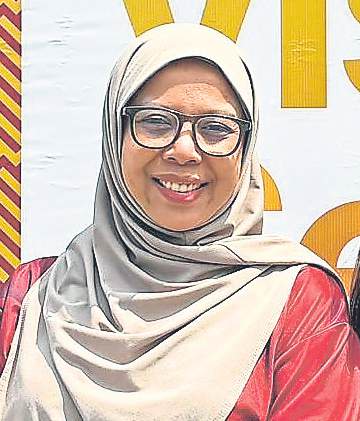
Nurul Asyikin says MSU students aren’t just learning how to sell, but also how to help others rise
“These students are not just learning how to sell — they are learning how to help others rise. That is what we mean by knowledge transfer,” Nurul Asyikin added.
The participation also spanned other faculties, including the Medical, Hospitality, Health Sciences and Creative Arts Schools.
Each group contributed based on its domain — from food safety to public engagement to event styling. It also aligned with MSU’s SDG pillars — particularly education, entrepreneurship and community upliftment.
MSU’s involvement extended beyond booths and the Ecospect Heritage Fest, which took students through museums, gardens and checkpoints while dressed in traditional attire.
“We prepare students for globalisation, but they must be rooted in culture,” Nurul Asyikin said.
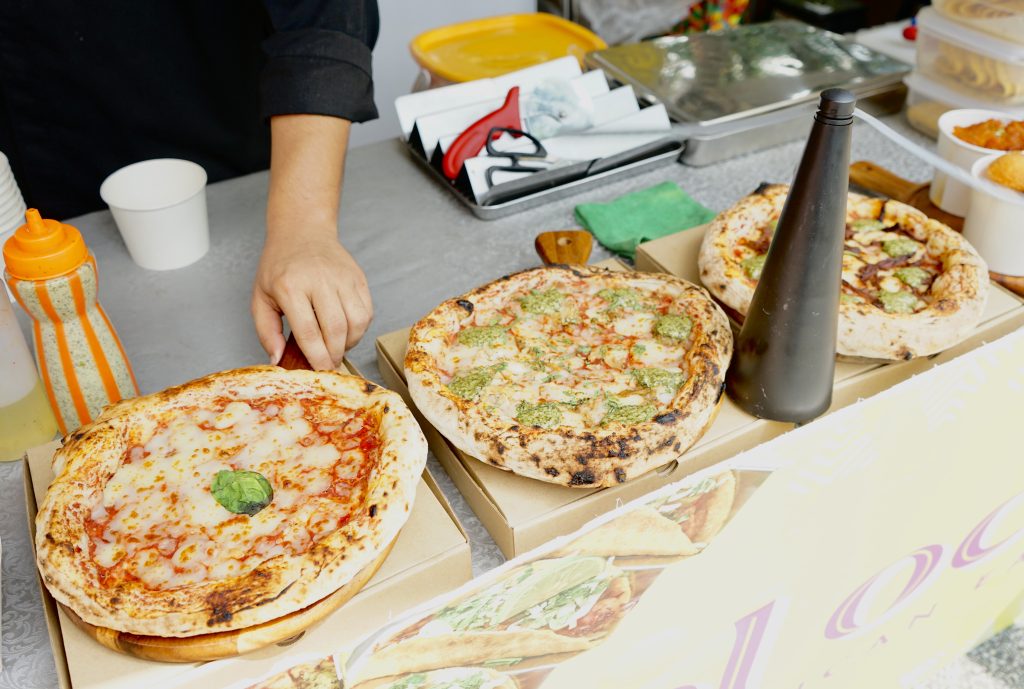
The event is part of a larger vision by the Selangor state govt to turn food into social infrastructure
From Tourism to Transformation
The event is part of a larger vision by the Selangor state government to turn food into social infrastructure — anchoring recovery and growth through tourism that includes, rather than extracts.
According to Ng, the festival was meant to benefit not just vendors, but homestay operators, artists, tour guides and community leaders.
“This festival proves that food is not merely for consumption, but a way to experience our local communities’ identity and way of life,” he said during the launch ceremony.
He noted that the broader goal under VS2025 is to welcome eight million tourist arrivals and generate RM11.7 billion in tourism-linked transactions — but in ways that directly benefit locals.
Launched under the theme “Surprising Selangor”, VS2025 is the Selangor state government’s flagship campaign to revitalise tourism and stimulate economic growth.
With a dedicated investment of RM8 million, VS2025 focuses on four strategic pillars: Cultural heritage, eco-tourism, sports tourism and agritourism.
It highlights traditional arts, historical sites, firefly sanctuaries, waterfalls, paddy fields and local fruit farms, alongside sports activities like paragliding and cycling.
The campaign’s official mascot, Spark the Firefly, symbolises Selangor’s commitment to sustainable tourism.
To strengthen its reach, Selangor has launched the dedicated portal visitselangor2025.my, offering curated itineraries and travel updates.
Strategic partnerships with Capital A Bhd (AirAsia), Sony Malaysia Sdn Bhd and Batik Air Malaysia are further amplifying visibility both locally and abroad, positioning Selangor as a dynamic yet community-focused tourism destination within ASEAN.
To this end, Selangor is also launching its Discover Selangor digital platform, designed to centralise future expos, travel packages and event announcements.
The site, integrated into BusinessSelangor.com.my, is positioned as both a promotional tool and a service portal for vendors and tourists alike.
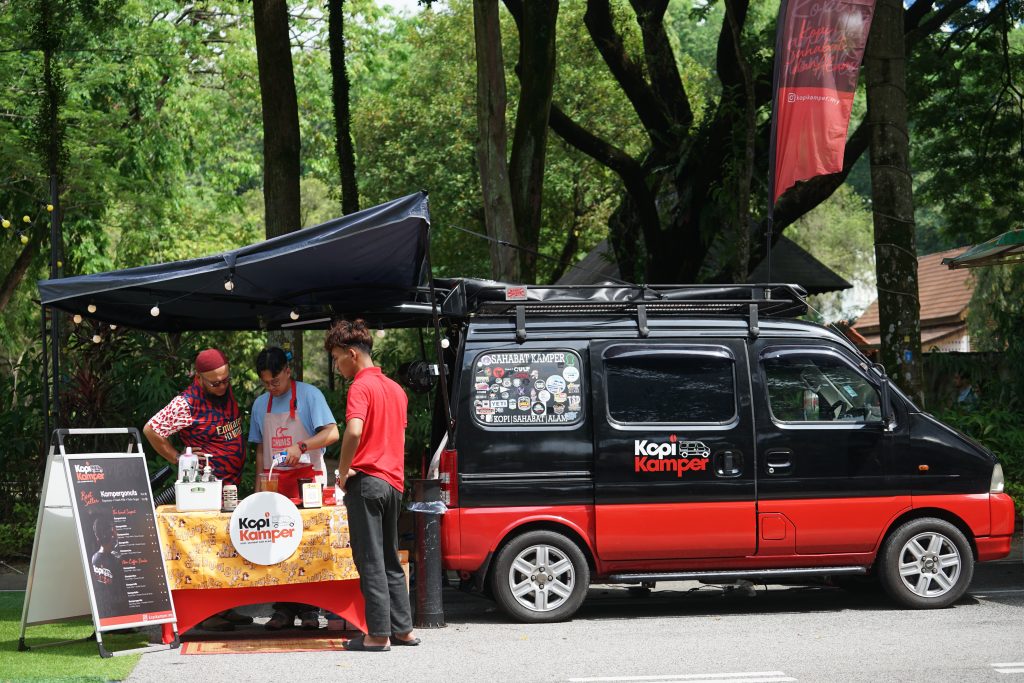
Kopi Kamper, combining love for coffee and camping, also sets up a booth at the festival
Return to People-powered Tourism
Selangor Mega Food Fest 2025 marked the revival of the state’s large-scale food festival after nearly a 10-year hiatus. According to Tourism Selangor, the long pause was driven by a shift in tourism trends and, more recently, by the disruptions of the Covid-19 pandemic. But the comeback marks more than a return to normalcy — it reflects a new model of people-powered tourism.
“We have moved beyond just organising
events. We are thinking in terms of ecosystems — what kind of tourism builds resilience, not just revenue,” said Mohamad Faroul Mustaffa.
Plans are already underway to regionalise future editions. Selangor hopes to welcome vendors and partners from neighbouring ASEAN countries such as Singapore, Thailand and Indonesia.
The state is also exploring zoning concepts by region, allowing Johor to showcase its “asam pedas”, or Terengganu to highlight “nasi kerabu”.
“We want to make Selangor the culinary gateway of Malaysia. But to do that, we have to make sure the locals benefit first,” he added.
The emphasis on inclusion and access was evident across the event’s physical design and programming.
Entry was free, even for riding the hot air balloon, while all concerts were open to the public, and infrastructures such as parking and shuttle routes were optimised for walk-ins and low-income visitors.
Siti Nursyahila stressed that this format was intentional.
“We want everyone to feel like they belong — whether you come by car or bus, whether you have RM10 or RM100,” she said.
Future events will continue to uphold these values, with hopes that the Mega Food Fest could become an annual fixture.
“The energy we have seen tells us this is what people need — space, dignity, visibility,” she added.
Layered Support, Shared Success
The festival was made possible through multi-agency collaboration, including Shah Alam City Council (MBSA), Cuckoo International (M) Bhd, DoubleTree by Hilton i-City, SugarBomb Worldwide Sdn Bhd, Padat KDEB, Iron Girl (M) Sdn Bhd, Kelab Larian Malaysia Women Marathon (MWM) and Masjid Negeri Shah Alam, while safety and traffic control were led by Ibu Pejabat Polis Daerah (IPD) Shah Alam.
The state also tapped into partnerships with institutions like MSU, local entrepreneurs and private logistics providers to keep the festival both safe and people-centric.
For Tourism Selangor — whose mandate spans nine districts including Hulu Selangor, Sabak Bernam, Klang and Sepang — the festival reaffirmed the belief that tourism works best when it is rooted in lived realities.
“Events like this make people feel like they belong again. It’s not just about tourism — it’s about healing together,” Mohamad Faroul Mustaffa said.
PLATS Selangor
PLATFORM Selangor (PLATS) is a digital initiative under Mentri Besar Selangor Inc (MBI), developed in collaboration with Permodalan Negeri Selangor Bhd (PNSB) to support micro and small enterprises in embracing digitalisation.
Since its launch in 2020, PLATS has registered over 20,000 merchants, offering free promotional support, entrepreneurship training and access to programmes such as U-PLATS and PLATS Biaya — which provide microfinancing and social security coverage for eligible traders.
PLATS Selangor also functions as a curated collective of night market operators selected for state-level activation. Members are vetted based on location, authenticity and community impact. Through a selection process managed via the Flashpoint platform, only Selangor-based vendors are eligible.
Successful applicants gain access to major events like Ramadhan bazaars, paddy field festivals and public food expos, ensuring broader exposure and growth opportunities in the state’s evolving digital economy.
MSU’s 3 impact zones at the festival
- JumpStart booths: Student-led businesses coached and mentored on-site.
- Social entrepreneurship booths: B40 and ‘asnaf’ entrepreneurs supported by students.
- Heritage treasure hunt: Cross-faculty challenge on cultural literacy.
- This article first appeared in The Malaysian Reserve weekly print edition
The post Food revives communities at Mega Food Fest 2025 appeared first on The Malaysian Reserve.
